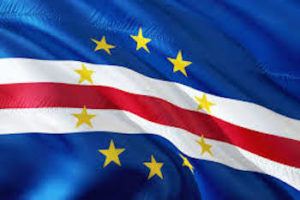
*On this date in c 1456, Cape Verde is celebrated. Cape Verde is an archipelago and island nation in the central Atlantic Ocean, located near West Africa.
Officially, the Republic of Cabo Verde consists of ten volcanic islands with a combined land area of approximately 1,557 square miles. Before the arrival of whites, the Cape Verde Islands were uninhabited. Genoese and Portuguese navigators around 1456 discovered them during the Middle Passage. According to official Portuguese records, the first discoveries were made by António de Noli, appointed Cape Verde governor by the Portuguese king Afonso V. In 1462, Portuguese settlers arrived at Santiago and founded a settlement called Ribeira Grande.
The original Ribeira Grande was the first permanent European settlement in the tropics. Soon after, the archipelago prospered from the Atlantic slave trade. Pirates occasionally attacked the Portuguese settlements. Francis Drake, an English privateer, twice sacked the (then) capital Ribeira Grande in 1585 when it was a part of the Iberian Union. Following a French attack in 1712, the town's importance declined relative to nearby Praia, which became the capital in 1770. The decline in the slave trade in the 19th century resulted in an economic crisis. Cape Verde's early prosperity slowly vanished.
However, the islands' position astride mid-Atlantic shipping lanes made Cape Verde ideal for resupplying ships. Due to its excellent harbor, Mindelo, situated on the island of São Vicente, emerged as a significant commercial center during the 19th century. American diplomat Edmund Roberts visited Cape Verde in 1832. With few natural resources and inadequate sustainable investment from the Portuguese, the citizens grew increasingly discontented with the colonial masters, who refused to give the local authorities more autonomy. In 1951, Portugal changed Cape Verde's status from a colony to an overseas province in an attempt to blunt growing nationalism.
In 1956, Amílcar Cabral and a group of fellow Cape Verdeans and Guineans organized (in Portuguese Guinea) the clandestine African Party for the Independence of Guinea and Cape Verde (PAIGC). It demanded improved economic, social, and political conditions in Cape Verde and Portuguese Guinea, laying the groundwork for the independence movements of both nations. Moving its headquarters to Conakry, Guinea, in 1960, the PAIGC began an armed rebellion against Portugal in 1961. Acts of sabotage eventually grew into a war in Portuguese Guinea that pitted 10,000 Soviet Bloc-supported PAIGC soldiers against 35,000 Portuguese and African troops. By 1972, the PAIGC controlled much of Portuguese Guinea, despite the presence of Portuguese forces; however, the organization did not attempt to disrupt Portuguese control in Cape Verde. Portuguese Guinea declared independence in 1973 and was granted de jure independence in 1974.
A budding independence movement culminated in the archipelago's independence in 1975. Since the early 1990s, Cape Verde has been a stable representative democracy and has remained one of the most developed and democratic countries in Africa. Lacking natural resources, its developing economy is mostly service-oriented, with a growing focus on tourism and foreign investment. Its population of around 550,000 (as of mid-2019) is predominantly of mixed Black African and white European heritage and is predominantly Roman Catholic, reflecting the legacy of Portuguese rule. A sizable Cape Verdean diaspora community exists worldwide, considerably outnumbering the island's inhabitants. Cape Verde is a member state of the African Union.